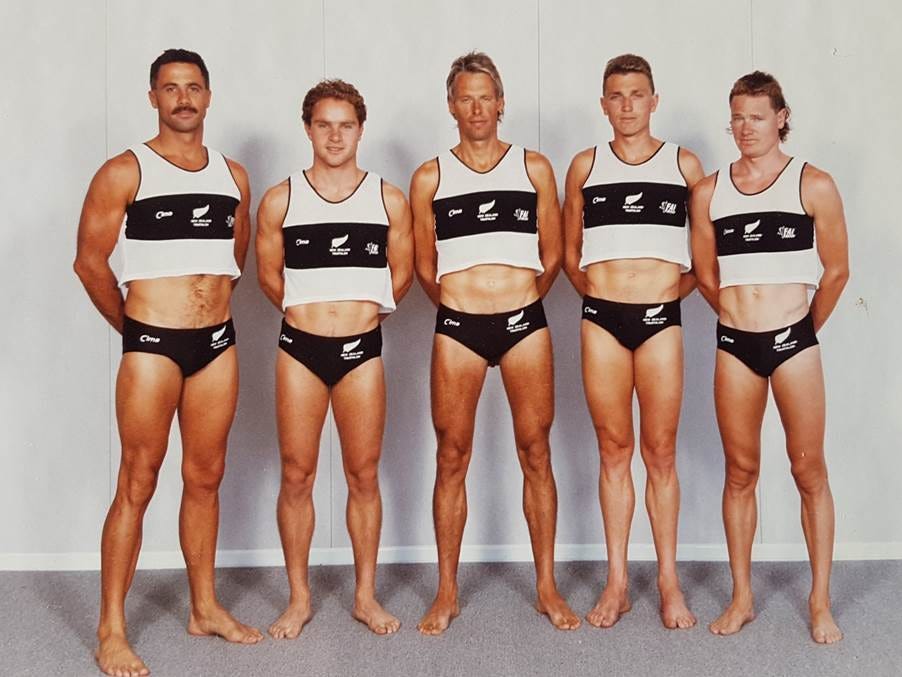The Tired Athlete
Overreaching vs Overtraining, Role of The ANS, Prevention & Monitoring, Nutritional & Medical Considerations, Athletes At Risk
“Fatigue makes cowards of us all”
Vince Lombardi

It is October 1989. I am 36 and in the autumn of my (semi) professional triathlon career. I am preparing for the Commonwealth Games Triathlon, scheduled in four months to be held in Auckland, New Zealand, my (adopted) home country. Rick Wells, the 1987 world champion, is our hope for a medal. Over the years I have had some close tussles with him and secretly I rate my chances for a good result. I’d trained hard over the New Zealand winter months and am in superb form, ready to tackle the two qualifying races. We are assigned a full quota of six spots for our country, so I consider the qualifying events a mere formality.
Then, one morning, I wake up with a sore throat. ‘No worries – a few easy days and I’ll be fine,’ I think. But the sore throat doesn’t go away, and after a week of taking it easy I start to lose some of my hard-won fitness.
I go back to training and ignore the symptoms. Besides the sore throat, fatigue creeps in. It is not the normal fatigue, which goes with hard training and which challenges our bodies to adapt and become stronger. It is more like the draining, zombie-like exhaustion which comes with illness, and which distinguishes itself from training fatigue by a drop in training performance.
I don’t sleep well, experience night sweats, and start to lose my appetite as well as my motivation to train. I become irritable and depressed. Being a medical practitioner is not helpful. Doctors are notorious for ignoring their own symptoms.
I also do not have a coach to consult. I have coached other athletes to world championship titles so, surely, I know what is good for me….
I battle on and drag myself out of bed in the mornings to get to the pool for another session of self-flagellation. I force myself to eat and be nice to people, all the time well aware that I am running out of time.
By ignoring my symptoms, I dig myself into a hole by the time the first selection event is held in Auckland in early November, three months out from the Games. Ranked second behind Rick Wells I finish fifth, my place in the team suddenly under threat.
With foolish determination I keep ignoring the signals from my body. Somehow, I pull an adequate performance out of the hat at the final selection race, finishing a distant second behind Rick, but securing my selection spot.
The Games are coming closer and there are no signs of improvement. I need a miracle to turn things around. But miracles only happen to the religious and the gullible, so I keep training and arrive at the race fooling myself that things are not too bad and all I need is ‘a good day’.
The triathlon at the Games is a huge success with the locals coming out to the Auckland waterfront en masse to watch the spectacle. It is not a success for me personally. After a choppy swim, I am well out of contention, two minutes down on the lead group. Where I normally make some gains on the bike, I now have difficulty holding my own. The bike course takes in one of my favourite hill climbs, but this time it feels like Mount Everest, my heavy legs turning round in what feels like slow motion. The run is no better. The crowd roars. All I want is to be out of sight but there is nowhere to hide. I am relieved to finally see the finish line. The only consolation for me is the fact that my teammates Erin Baker and Rick Wells both win gold.
These painful memories came flooding back when I read Gordo’s three posts on overtraining. In his unique, bullet point, staccato style he describes his own journey, and that of his training buddy Clas Bjorling, through a period of heavy training and racing and how it affected their bodies and minds.
Every bullet point contains a truth or some gem, proof that the writer has good insight on the topic. It takes concentration to take it all in but when you do, it makes a lot of sense.
The more experienced and serious endurance athletes will recognise some, if not all of it, as it is likely that they have had a similar experience at some stage in their career.
Gordo describes the insidiousness of the overtraining syndrome, the set of circumstances and the conditions required for it to occur and fester over time, the warning signs, the symptoms, and what it takes to recover.
Following my own brush with ‘overtraining’ prior to the ill-fated 1990 Commonwealth Games, I took some months to recover. My experience triggered my interest in the topic of overtraining and, as a sports medicine practitioner, ‘the tired athlete’ became an area of interest. Now, 30 years later, I have seen many athletes presenting with more than normal fatigue and a variety of related symptoms. The arrival of covid has seen an explosion of athletes with severe fatigue and other symptoms, which, for me, has confirmed the relationship between training hard, a suppressed immune system, and viral infections.
Let’s have a look at what I have learned about ‘the tired athlete’, as a sports medicine practitioner, coach and athlete.
Overreaching Vs Overtraining
The Role of the Autonomic Nervous System
Nutritional Aspects of Overtraining
Medical Aspects To Consider
Athletes At Risk
Overreaching Versus Overtraining
First, we need to define what overtraining is and how it differs from overreaching (Table 1).
Overreaching refers to a short-term training strategy where athletes intentionally push themselves to their limits in order to maximise performance gains. The goal of overreaching is to create a temporary state of fatigue in the body, which is then followed by a period of recovery/adaptation that leads to a heightened improvement in athletic performance over and above you would expect with a more controlled and gradual approach.
If an athlete overreaches too much and for too long, and does not allow sufficient time for recovery, it can lead to a state of overtraining, indicated by a drop in performance and the occurrence of behavioral, emotional, and physical symptoms of which excessive, sometimes extreme, fatigue is the most common. In this state the body’s immune system is heavily compromised and infections, mostly of the viral variety, have a good chance to take hold, adding to the symptoms and prolonging recovery.
Most serious endurance athletes I know have experienced prolonged periods of overreaching during which they have not allowed their body enough recovery to fully adapt to training stimulus. The body and immune system are still functioning well enough, but the body will give subtle signals to tell you to ease up.
Keep reading with a 7-day free trial
Subscribe to Endurance Essentials to keep reading this post and get 7 days of free access to the full post archives.






